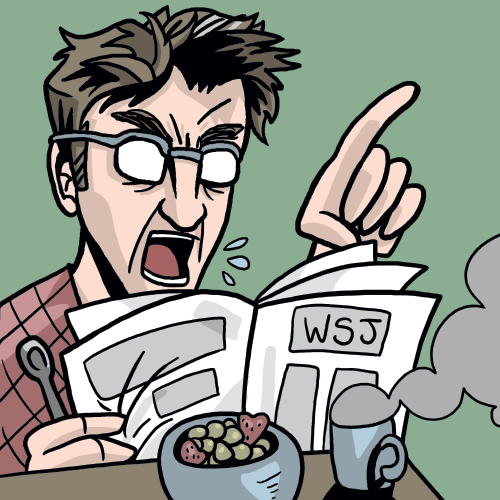Research
After the ACA: Freeing the market for health care
In The Future of Healthcare Reform in the United States Edited by Anup Malani and Michael H. Schill, p 161-201, University of Chicago Press. An essay on health care, first presented at the conference, The Future of Health Care Reform in the United States, at the University of Chicago Law School. Most of the policy discussion is focused on health insurance. But the health care market is dysfuctional, and needs to be fixed as well. Where are the Southwest Airlines, Walmart and Apple of health care, bringing cost saving, efficiency, and innovation? I argue that we need a big freeing up of health care markets. I also focus more than usual on supply restrictions. It doesn't do much good for people to pay with their own money if suppliers cannot respond to that demand. Last manuscript in case of copyright problems with the published version above.
In The Future of Healthcare Reform in the United States Edited by Anup Malani and Michael H. Schill, p 161-201, University of Chicago Press. An essay on health care, first presented at the conference, The Future of Health Care Reform in the United States, at the University of Chicago Law School. Most of the policy discussion is focused on health insurance. But the health care market is dysfuctional, and needs to be fixed as well. Where are the Southwest Airlines, Walmart and Apple of health care, bringing cost saving, efficiency, and innovation? I argue that we need a big freeing up of health care markets. I also focus more than usual on supply restrictions. It doesn't do much good for people to pay with their own money if suppliers cannot respond to that demand. Last manuscript in case of copyright problems with the published version above.
Health-Status Insurance
Feb. 18 2009. In Cato's Policy Analysis No 633. If you get sick and lose health insurance you are stuck -- your premiums skyrocket or you may not be able to get insurance at all. The article shows how private markets can solve this problem. If you get sick, your health premiums go up but a separate "premium increase insurance contract" pays a lump sum so that you can afford the higher health premiums. The big advantage is freedom and competition: now health insurance can freely compete for all customers all the time. This piece is written for a nontechnical popular audience, with a lot of policy discussion. This paper explains the basic framework of Time-Consistent Health Insurance (next) and thinks through lots of real-world issues and answers to "what ifs." "What to do about pre-existing conditions" in the Wall Street Journal August 14 2009 and Health Status insurance Investors Business Daily (local link) April 2 2009 are op-eds explaining the basic idea.
Feb. 18 2009. In Cato's Policy Analysis No 633. If you get sick and lose health insurance you are stuck -- your premiums skyrocket or you may not be able to get insurance at all. The article shows how private markets can solve this problem. If you get sick, your health premiums go up but a separate "premium increase insurance contract" pays a lump sum so that you can afford the higher health premiums. The big advantage is freedom and competition: now health insurance can freely compete for all customers all the time. This piece is written for a nontechnical popular audience, with a lot of policy discussion. This paper explains the basic framework of Time-Consistent Health Insurance (next) and thinks through lots of real-world issues and answers to "what ifs." "What to do about pre-existing conditions" in the Wall Street Journal August 14 2009 and Health Status insurance Investors Business Daily (local link) April 2 2009 are op-eds explaining the basic idea.
“Time-Consistent Health Insurance”
Journal of Political Economy, 103 (June 1995) 445-473. None of us has health insurance, really. You get sick, you lose your job or get divorced, and now you have a preexisting condition. This paper shows how to implement “premium increase insurance” that gets around the problem. If you get sick, you get a lump sum that allows you to pay higher insurance premiums. It allows a private-market solution to the main problem of health insurance attracting regulation.
Journal of Political Economy, 103 (June 1995) 445-473. None of us has health insurance, really. You get sick, you lose your job or get divorced, and now you have a preexisting condition. This paper shows how to implement “premium increase insurance” that gets around the problem. If you get sick, you get a lump sum that allows you to pay higher insurance premiums. It allows a private-market solution to the main problem of health insurance attracting regulation.
